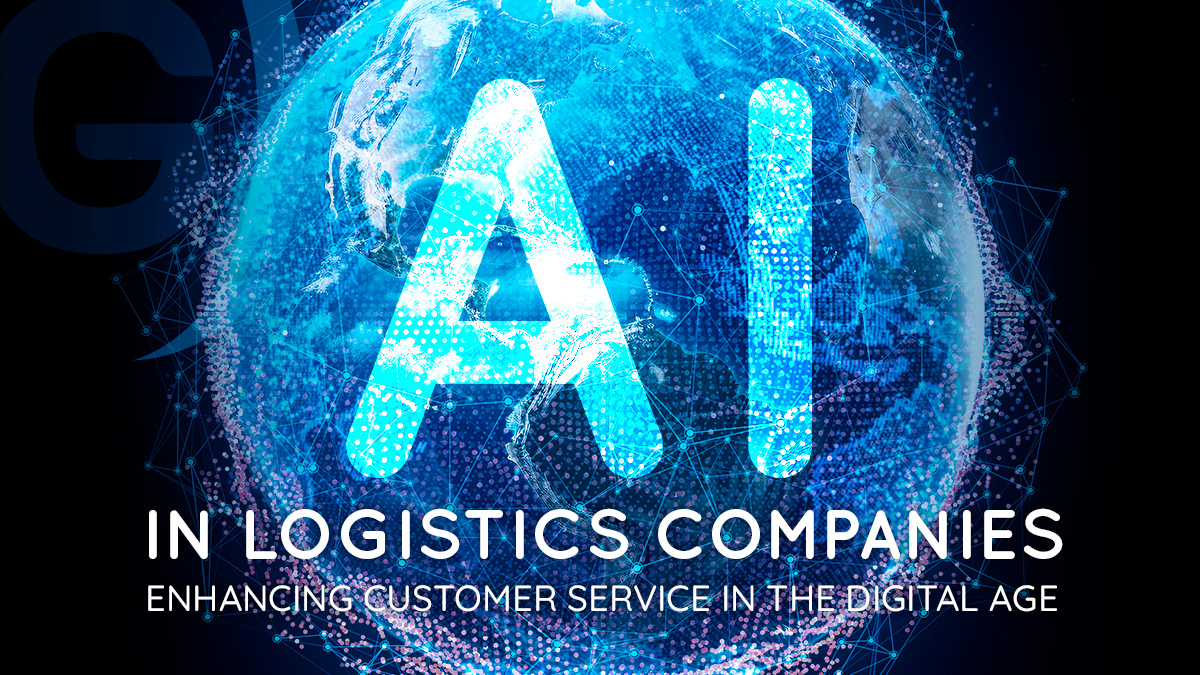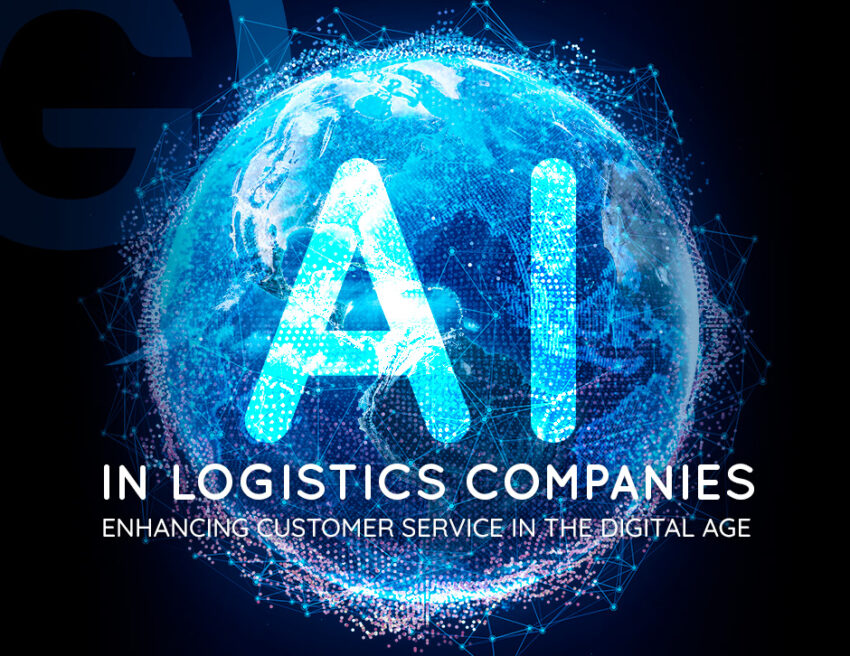The logistics industry, characterized by the movement of goods across complex supply chains, has always been about efficiency and customer satisfaction. As technology advances, artificial intelligence (AI) is emerging as a powerful tool to elevate customer service standards within logistics companies. By streamlining operations, predicting challenges, and personalizing customer interactions, AI in logistics companies offers numerous ways to enhance the overall customer experience.
In this blog, we’ll explore how AI in logistics companies is revolutionizing customer services, from automating routine tasks to offering real-time solutions to customers.

Automating Routine Customer Queries with AI in Logistics Companies
One of the most direct impacts of AI in logistics companies is its ability to handle routine inquiries through automation. Chatbots and virtual assistants powered by AI can manage basic customer questions such as delivery tracking, order status, and service availability.
Instead of waiting on hold to speak with a human agent, customers can receive immediate responses, available 24/7. These bots are trained to understand frequently asked questions, providing instant solutions without human intervention, which reduces the workload on customer service teams while offering timely assistance to customers.
Key Benefits:
- 24/7 availability: Customers can access support at any time of the day or night.
- Reduced waiting time: Immediate responses prevent frustration due to delays.
- Cost efficiency: Reduces the need for large customer service teams to manage basic queries.
2. Enhancing Personalization in Customer Interactions
AI in logistics companies excels at processing large volumes of data, which enables logistics companies to deliver highly personalized customer experiences. By analyzing historical data, AI systems can understand individual customer preferences, predict future needs, and offer personalized solutions or recommendations.
For instance, AI can predict the preferred shipping methods for regular customers, suggest optimal delivery windows, or even anticipate potential issues based on past experiences. Such personalized experiences not only boost customer satisfaction but also create loyalty as customers feel their needs are understood and met proactively.
Key Benefits:
- Tailored recommendations: AI systems can offer personalized shipping options based on customer behavior.
- Proactive solutions: AI anticipates potential problems before they arise, helping customers avoid delays.
- Increased loyalty: Customers who receive personalized attention are more likely to remain loyal.
3. Optimizing Real-Time Tracking and Updates
In logistics, real-time tracking and instant updates are crucial for customer satisfaction. AI in logistics companies enhances this aspect by providing more accurate and real-time information on shipments. With the integration of AI-driven tracking systems, customers can receive instant notifications about the location of their goods, estimated delivery times, and any potential delays due to weather or traffic conditions.
AI systems can predict potential disruptions and reroute shipments when necessary, allowing companies to communicate effectively with customers and manage expectations. These real-time updates help keep customers informed and reduce uncertainty, which improves trust in the logistics provider.
Key Benefits:
- Increased transparency: Customers know exactly where their shipment is and when it will arrive.
- Proactive notifications: AI can alert customers about delays before they happen, allowing for contingency planning.
- Improved reliability: By predicting issues early, AI ensures shipments are rerouted to minimize disruptions.
4. Predictive Analytics for Improved Customer Service
AI in logistics companies allows for predictive analytics, which offers logistics companies the ability to foresee challenges and proactively address them before they impact the customer. For example, AI can analyze traffic patterns, weather forecasts, and historical shipping data to predict potential delays or route inefficiencies.
By leveraging this data, logistics companies can take preemptive action, adjusting delivery routes or offering customers alternative delivery options before issues occur. This predictive capability not only improves the efficiency of logistics operations but also enhances customer service by providing accurate delivery estimates and reducing the likelihood of unexpected delays.
Key Benefits:
- Minimized disruptions: Potential delays can be anticipated and avoided through predictive route adjustments.
- Accurate delivery times: Customers receive more accurate delivery estimates, improving satisfaction.
- Proactive problem-solving: Companies can offer alternative solutions before customers even realize there’s an issue.
Conclusion
AI in logistics companies is transforming the way customer services are delivered in the logistics industry. From automating routine queries to providing real-time updates and predictive analytics, AI helps logistics companies offer faster, more reliable, and personalized services to their customers. As AI continues to evolve, logistics companies that embrace these technologies will be better equipped to meet the growing demands of their customers, positioning themselves as leaders in a competitive industry.


